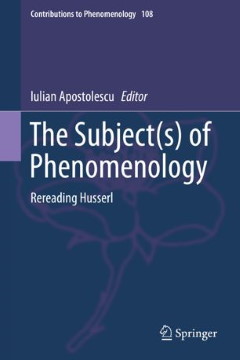Repository | Book | Chapter

(2020) The subject(s) of phenomenology, Dordrecht, Springer.
This chapter reconstructs the account of the organization of unified definite manifolds that Husserl developed in his early logic of parts and wholes. I argue that Husserl's conception of necessity gets fixed through the logic of fitness that is operative in his account of unified definite manifolds that are organized by symmetrical part/whole relations. Husserl's logical account of necessity finds its ultimate justification in his theory of intentionality and is operative in his phenomenological methodology generally. Through this conception of necessity of the way in which manifolds are unified and organized, Husserl radicalized and exploded the Kantian conception of the material a priori and distinguished among several kinds of a priori, e.g., the correlational a priori, a priori bound to the empirical, and pure material a priori. Husserl's phenomenological account of the material a priori further clarifies the important differences with Kant's approach to the problem of necessity.
Publication details
DOI: 10.1007/978-3-030-29357-4_2
Full citation:
Konopka, A. (2020)., Parts, wholes, and phenomenological necessity, in I. Apostolescu (ed.), The subject(s) of phenomenology, Dordrecht, Springer, pp. 17-30.
This document is unfortunately not available for download at the moment.


